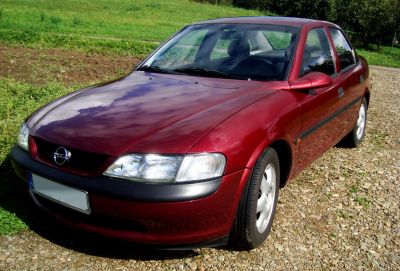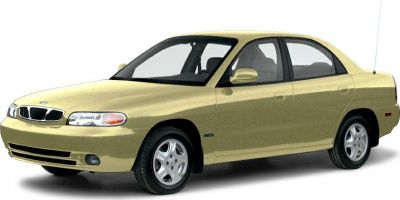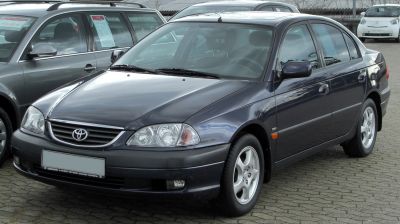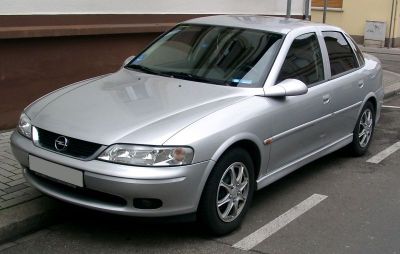 1998 Toyota Progres Dimensions, Size & Specs
1998 Toyota Progres Dimensions, Size & SpecsMeasurements of the 1998 Toyota Progres, engineered for optimal performance and comfort
| Dimensions | |
|---|---|
| Length: | 4510 mm177.6 in14.8 ft |
| Width: | 1700 mm66.9 in5.6 ft |
| Height: | 1435 mm56.5 in4.7 ft |
| Trunk Capacity: | 420 liter14.8 cu ft |
| Weight Specifications | |
| Curb Weight: | 1520 kg3351 lbs |
| Maximal permitted Weight: | 1795 kg3957 lbs |
| Tire Specifications | |
| Tire Sizes: |
|
The Toyota Progres, produced from 1998 to 2007, is a refined sedan combining elegant design with practical proportions. Measuring 4510 mm (177.6 inches) in length, 1700 mm (66.9 inches) in width, and standing at 1435 mm (56.5 inches) tall, it fits comfortably within the mid-sized sedan segment. This size provides ample interior space while maintaining a manageable footprint for urban driving and parking. The Progres comes with a curb weight of 1520 kg (3,351 lbs) and a maximum weight rating of 1795 kg (3,957 lbs), signifying a solid build balanced for comfort and stability. With a luggage capacity of 420 liters (14.8 cubic feet), it offers respectable storage for daily errands or weekend trips. Equipped with 195/65 R15 H tires, the vehicle balances ride comfort with handling precision. The Toyota Progres sedan's well-considered dimensions make it an excellent choice for those seeking a blend of luxury, performance, and everyday usability. Whether evaluated for size comparison or practical use, the Progres stands out as a notable model in Toyota's late 90s to mid-2000s lineup.
Discover the standout features that make the 1998 Toyota Progres a leader in its class
Have a question? Please check our knowledgebase first.
The Toyota Progres sedan produced between 1998 and 2007 features a length of 4510 mm (177.6 inches), a width of 1700 mm (66.9 inches), and a height of 1435 mm (56.5 inches). These dimensions position the Progres as a mid-sized sedan suitable for urban and suburban driving, offering a balanced profile that is neither too bulky nor too compact. The width of 1700 mm ensures comfortable cabin space without being overly wide for most road conditions, while the height of 1435 mm contributes to a low, aerodynamic stance. These exterior specifications make the Progres practical for everyday use, balancing interior comfort and drivability.
The Toyota Progres from 1998 to 2007 has a curb weight of approximately 1520 kg (3351 lbs), which influences its driving dynamics and fuel efficiency. This weight is typical for a mid-sized luxury sedan, providing a solid and stable feel on the road, enhancing ride comfort and stability at higher speeds. The well-distributed weight contributes to balanced handling and reduces the impact of road irregularities. However, the weight also means the vehicle requires a sufficiently powerful engine to maintain lively performance and avoid feeling sluggish. Overall, the weight balances comfort, safety, and performance, making the Progres suitable for drivers who value a smooth, composed ride.
The Toyota Progres offers a luggage capacity of 420 liters (approximately 14.8 cubic feet), which is fairly generous for a mid-sized sedan of its era. This ample trunk space allows for comfortable storage of daily shopping, luggage for long trips, or sports equipment, making it practical for families or individuals who require versatile cargo room. The 420-liter capacity ensures that the sedan can accommodate multiple suitcases and bags, providing convenience without compromising passenger space inside the cabin. This luggage volume adds to the overall practicality of the Progres as both a commuter car and a vehicle for extended travel.
The standard tire size for the Toyota Progres (1998-2007) is 195/65 R15 H. This tire specification balances comfort, traction, and handling performance for a mid-sized sedan. The 195 mm width offers sufficient grip for stable handling, while the 65% aspect ratio provides a comfortable ride by absorbing road imperfections. The 15-inch wheel diameter fits well with the car's suspension setup, promoting a good balance between ride quality and responsive handling. The 'H' speed rating indicates that the tires are designed to operate safely at speeds up to 210 km/h (130 mph), exceeding typical speed requirements for this type of vehicle.
Yes, the Toyota Progres with its length of 4510 mm (177.6 inches) and width of 1700 mm (66.9 inches) comfortably fits into a standard garage. Typical single-car garages range from approximately 2.4 to 3 meters (7.9 to 9.8 feet) in width and about 5 to 6 meters (16.4 to 19.7 feet) in length, which is sufficient to accommodate the Progres. Its height of 1435 mm (56.5 inches) also poses no issues with ceiling clearance. This means owners can easily park the Progres indoors, protecting the vehicle from weather elements while maintaining easy accessibility.
The Toyota Progres was introduced as a new model in 1998, effectively replacing the Toyota Corona EXiV and the Toyota Mark II Qualis models in Toyota’s lineup but did not have a direct predecessor with the same name. Compared to these predecessors, the Progres offered a slightly more refined and luxurious approach with dimensions tailored for comfortable urban driving. With a length of 4510 mm and width of 1700 mm, it was designed to provide more cabin space and trunk capacity, while maintaining manageable exterior size for tight city environments. Overall, the Progres represents an evolution in dimension and comfort compared to older sedans it replaced, prioritizing a blend of luxury and mid-size practicality.
The Toyota Progres fits into the mid-sized luxury sedan category, and when compared to contemporaries such as the Lexus ES or Nissan Cefiro, it tends to be slightly more compact. With a length of 4510 mm (177.6 inches) and weighing around 1520 kg (3351 lbs), it is lighter and slightly shorter than some rivals that often exceed 4600 mm in length and can be heavier by 100-200 kg. This makes the Progres more maneuverable and potentially more fuel-efficient in urban settings. Despite this, it offers competitive luggage capacity (420 liters), ensuring practicality matches that of larger models. This size and weight balance helps it appeal to buyers seeking luxury features without the bulk of larger sedans.
The Toyota Progres (1998-2007) has a maximum weight capacity of 1795 kg (3956 lbs), which includes the vehicle’s curb weight plus passengers, cargo, and any additional equipment. This load rating is crucial for safe operation, ensuring the vehicle can handle the combined weight without compromising handling, braking, or suspension integrity. Staying within the maximum weight helps maintain optimal fuel efficiency and prevents undue wear on mechanical components. It also impacts the vehicle’s legal and insurance status. For owners, respecting the weight limit means a safer driving experience and prolonged vehicle longevity.
With a height of 1435 mm (56.5 inches) and a width of 1700 mm (66.9 inches), the Toyota Progres offers an advantageous profile for urban driving and parking. The relatively low height helps reduce aerodynamic drag and enhance vehicle stability at higher speeds, but also ensures the car can easily navigate parking garages with limited clearance. The width makes the vehicle narrow enough to fit into tight city parking spaces and lanes while keeping ample interior room. As a result, the Progres balances exterior compactness with interior comfort, making it a practical choice for city dwellers who often contend with traffic congestion and limited parking availability.
The Toyota Progres is a mid-sized luxury sedan produced between 1998 and 2007, combining refined comfort with classic Toyota reliability. Known for its smooth ride quality, the Progres features high-quality interior materials, spacious seating, and advanced features for its time such as power windows, climate control, and safety systems. Under the hood, it typically offered smooth inline six-cylinder engines that provided a good balance of power and efficiency. Its styling emphasized understated elegance rather than flashiness, appealing to buyers seeking sophistication and a premium feel without being ostentatious. It was primarily targeted at the Japanese domestic market, making it a unique offering within Toyota’s model range during that decade.
Discover similar sized cars.

| Production: | 1962-1972 |
|---|---|
| Model Year: | 1962 |
| Length: | 4500 mm177.2 in |
| Width: | 1710 mm67.3 in |
| Height: | 1450 mm57.1 in |

| Production: | 1991-2005 |
|---|---|
| Model Year: | 1991 |
| Length: | 4385-4428 mm172.6-174.3 in |
| Width: | 1674 mm65.9 in |
| Height: | 1415 mm55.7 in |

| Production: | 1995-1998 |
|---|---|
| Model Year: | 1995 |
| Length: | 4495 mm177.0 in |
| Width: | 1841 mm72.5 in |
| Height: | 1425 mm56.1 in |

| Production: | 1995-1998 |
|---|---|
| Model Year: | 1996 |
| Length: | 4495 mm177.0 in |
| Width: | 1841 mm72.5 in |
| Height: | 1425 mm56.1 in |

| Production: | 1997-2001 |
|---|---|
| Model Year: | 1997 |
| Length: | 4495 mm177.0 in |
| Width: | 1700 mm66.9 in |
| Height: | 1430 mm56.3 in |

| Production: | 1997-2003 |
|---|---|
| Model Year: | 1997 |
| Length: | 4490-4520 mm176.8-178.0 in |
| Width: | 1710 mm67.3 in |
| Height: | 1425 mm56.1 in |

| Production: | 1999-2002 |
|---|---|
| Model Year: | 1998 |
| Length: | 4477 mm176.3 in |
| Width: | 1707 mm67.2 in |
| Height: | 1428 mm56.2 in |

| Production: | 1999-2002 |
|---|---|
| Model Year: | 1999 |
| Length: | 4495 mm177.0 in |
| Width: | 1841 mm72.5 in |
| Height: | 1425 mm56.1 in |
